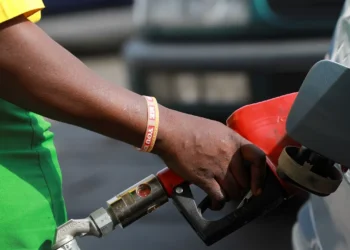The upcoming launch of the Blue Line rail system in Lagos has sparked mixed reactions among citizens due to its steep cost of N750 per trip. Abimbola Akinajo, the Managing Director of the Lagos Metropolitan Transport Authority (LAMATA), announced that the rail system is set to commence operations on September 4, 2023. However, the high fare has raised concerns about affordability and accessibility for the citizens.
During a media briefing at the Marina terminal, Akinajo revealed that despite the substantial fare, the government’s 50 percent fare reduction, which applies to all government-owned transportation, will also be extended to the Blue rail line. This move is an attempt to mitigate the impact of the high cost on commuters.
The Blue Line rail project, commissioned in January 2023 by former President Muhammadu Buhari, aims to provide a 27-kilometer rail route from Okokomaiko to Mile 2 and Marina via Ijora. However, only the phase one covering 13 kilometers from Marina to Mile 2 is ready, with five stations strategically placed along the route.
Although the project was initially expected to commence commercial operations by the end of the first quarter of 2023, delays were experienced due to unforeseen challenges. Akinajo admitted, “We faced challenges in meeting that timeline, despite promising an August launch.”
The Blue Line rail service will operate during both morning and evening phases, operating between 6:30 am and 10:30 pm. A fixed timetable for the train stations will be provided for commuters’ convenience, available at all stations and on the LAMATA website. Akinajo emphasized the adherence to safety protocols, including the prohibition of food and drinks onboard to ensure a safe commuting experience.
Nigerians Reacts:
The high cost of N750 per trip has triggered reactions among Nigerians, with concerns raised about the affordability of the rail service for the general public. The introduction of the Blue Line rail service is expected to offer enhanced transportation options and reduce congestion in Lagos, a city known for its traffic challenges. However, its success and acceptance could hinge on the government’s responsiveness to citizens’ concerns about the fare and its impact on their daily lives.
Ola Rasheed, a trader in Lagos, told Ratecaptain that the rail project is supposed to cease the cost of transportation but it has done otherwise, N750 per trip is outrageous and it is only the rich that can afford that .
Yetunde, a Lagos state worker said she is disappointed to hear the news, she normally enters Mile 2 to Marine at the price of N300 per trip in public buses(Danfo) and the government that is supposed to subsidize the price is putting theirs above the normal price.
Godspower, who has a shop at Idumota also told RateCaptain that he knew that it was a means to extort more money from the masses, and it totally shows that the government does not have the interest of the public at heart.
Speaking to a development economic analyst, Stephen Akudike, in his words ” The price should be reviewed, the development should act as a palliative for the fuel subsidy removal and also provide the citizen to ease the economic tension in terms of transportation cost. The T-fare should be at the lowest price that can be afforded by all income level, not creating disparities of people who can enjoy this service. As inflation hits 24.08, the government should be regulating prices not adding to the burden of the people” he concluded.











